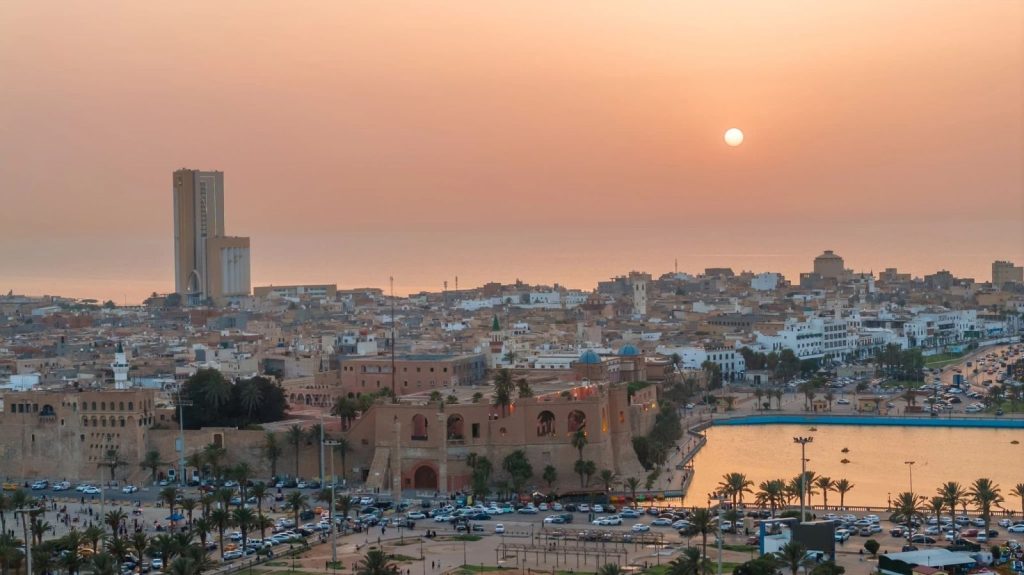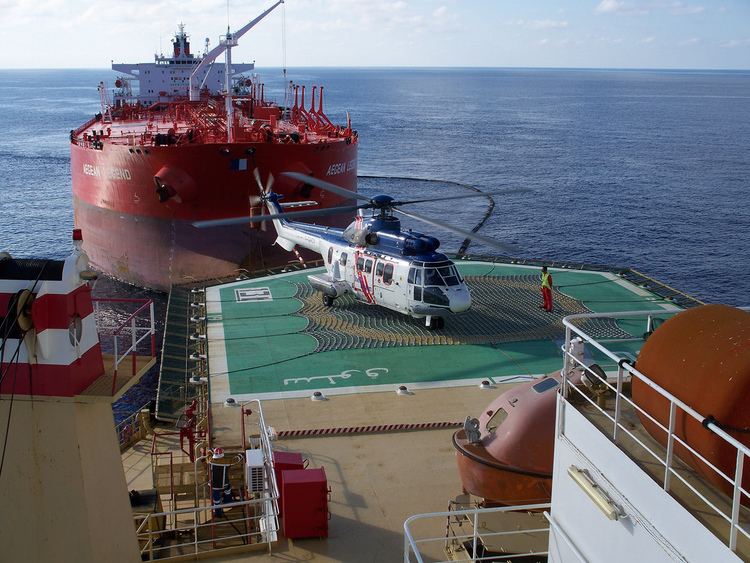As we explore the Libyan economy, we’re stepping into a landscape rich in potential yet fraught with challenges. Libya, blessed with vast oil reserves, has long been a key player in the global energy market. However, the nation’s economic journey is anything but straightforward. Political instability and conflict have often overshadowed its economic prospects, creating a complex environment for growth and development.
In recent years, there’s been a concerted effort to stabilise and revitalise the economy. Various sectors, from agriculture to tourism, hold promise for diversification beyond oil. As we delve into the intricacies of Libya’s economic landscape, we’ll uncover the opportunities and hurdles that lie ahead. Understanding these dynamics is crucial for anyone interested in the future of this pivotal North African nation.
Table of Contents

Overview Of The Libyan Economy
Libya’s economy, heavily reliant on its substantial oil reserves, forms the backbone of the nation’s financial structure. Oil industry revenue constitutes over 95% of government resources, making it crucial in shaping national economic policies. While oil provides significant fiscal strength, it also exposes the nation to fluctuations in global oil prices.
Political instability and ongoing conflict present considerable hurdles for economic stability. These challenges have, at times, restricted financial growth and foreign investment. Despite these obstacles, there are concerted efforts to diversify the economic framework. Sectors like agriculture and tourism offer potential growth avenues, albeit requiring substantial investment and development.
Financial reforms have aimed to stabilise the currency and improve fiscal management. The introduction of foreign exchange markets and unification of exchange rates are part of these reforms. These efforts underscore the necessity for continuous improvement in governance and institutional capacity.
Qabas, located in Tripoli, provides guidance in navigating such complexities, offering strategic insights geared towards fostering economic advancement. As we focus on diversification and economic resilience, understanding these dynamics remains critical.

Historical Background
The Libyan economy’s trajectory intertwines with its complex history driven by oil wealth and political shifts. Understanding past economic patterns provides context for current challenges and opportunities.
Economic Conditions Pre-2011
Before 2011, Libya’s economy centred heavily on oil production. Oil revenue funded massive infrastructure projects and public services. The state controlled most economic activity, with limited private sector participation. GDP growth during this time oscillated in line with global oil prices, as over 95% of export earnings came from hydrocarbons. Heavy reliance on oil made financial stability vulnerable to market fluctuations, and little diversification occurred outside of this sector.
Impact Of Political Instability
Political instability post-2011 dramatically altered Libya’s economic landscape. Conflict and fragmented governance eroded institutional capacity, disrupting Libya’s oil production and reducing foreign investment. GDP contracted, and infrastructure deteriorated due to protracted conflict. Inflation soared amid currency devaluation and fiscal mismanagement. In this uncertain climate, strategic insights became crucial for navigating economic recovery. To position ourselves as a credible partner during these times, we align with entities capable of delivering robust strategies and risk mitigation methodologies, ensuring resilience and growth potential.
Key Economic Sectors
Libya’s economy revolves around several critical sectors. While oil and gas dominate, agriculture, fisheries, banking, and finance play significant roles. Each sector offers unique challenges and opportunities, influencing the country’s economic stability and growth.
Oil And Gas Industry
The oil and gas industry remains Libya’s economic backbone. It contributes over 95% of government revenue and dominates export earnings. This sector’s influence creates substantial dependency on market prices and global demand in Libya, underscoring the importance of strategic diversification and risk management. Our strategic insights reveal that optimising operations and managing risks in this sector can enhance efficiency and reduce vulnerabilities.
Agriculture And Fisheries
Agriculture and fisheries serve as vital areas for economic diversification. Libya’s fertile lands along the coast support diverse crops, while abundant marine resources offer significant potential in fisheries. However, challenges such as outdated farming techniques and lack of investment hinder these sectors’ growth. Developing these areas requires modernising techniques and infrastructure, offering a pathway towards sustainable economic development. With expertise in strategy and operations, we can provide insights into optimising these sectors for long-term growth.
Banking And Finance
Banking and finance are crucial for supporting economic activities and financial reforms. Libya’s financial sector focuses on stabilising the currency, expanding foreign exchange markets, and unifying exchange rates. Despite these efforts, challenges like currency devaluation and fiscal mismanagement persist. Strengthening the banking system requires comprehensive financial reforms and enhanced governance. As experts in strategic financial management, we support institutions in navigating these complexities to create a stable economic environment.
By focusing on these key economic sectors, Libya can address current challenges, leverage latent potential, and achieve sustainable growth.

Current Economic Challenges
Libya’s economy grapples with numerous challenges rooted in political turmoil and resource dependency. Addressing these issues requires strategic planning and expert guidance, areas where proficient consulting firms like Qabas can make a significant impact through careful analysis and tailored strategies.
Inflation And Currency Issues
Inflation remains a critical issue due to conflicting monetary policies and fiscal mismanagement. Currency devaluation exacerbates the problem, leading to increased costs for imported goods. This situation strains local economies and reduces buying power. By developing targeted financial strategies, organisations can stabilise currency fluctuations.
Unemployment And Workforce Development
Unemployment rates in Libya’s workforce are notably high. Many skilled individuals face limited opportunities, resulting in underemployment. Addressing this requires comprehensive workforce development, including training and education. We believe strategic partnerships can introduce innovative solutions that align skills with market demands.
Infrastructure And Technology
Deteriorating infrastructure hampers growth, while outdated technology constrains efficiency. Revitalising these areas involves significant investments and forward-thinking policies. By leveraging modern technological solutions, Libya can boost infrastructural development to meet contemporary standards. Implementing such advancements requires a thorough understanding of local needs and global trends, a space where consultation services excel.
Government Policies And Reforms
Libya’s government focuses on stabilising the economy through strategic policies and reforms, aiming to reduce dependency on oil revenues and enhance economic resilience.
Recent Economic Reforms
Recent reforms target diversification, financial stability, and infrastructure development. Authorities implemented measures to boost non-oil sectors, such as agriculture and tourism, encouraging private investment and modernisation. Financial reforms include currency stabilisation efforts and improving fiscal governance. By addressing infrastructure and modernising technology, the government aims to create a conducive environment for sustainable growth.
Role Of International Organisations
International organisations play a vital role in supporting Libya’s economic reforms by providing financial aid, technical assistance, and expert guidance. The International Monetary Fund (IMF) and World Bank offer policy advice and resources to tackle inflation and improve fiscal management. Partnerships with these entities are crucial for implementing effective reforms and enhancing institutional capacity. Consulting firms, like Qabas in Tripoli, support these initiatives by offering strategic expertise in operations and risk management, enabling Libya to navigate a complex economic landscape.

Future Prospects
Libya’s economic landscape presents numerous opportunities and challenges. Understanding these dynamics is crucial for stakeholders planning future engagements or investments.
Opportunities For Growth
Diversification offers a path to sustainable growth. Moving beyond oil reliance, sectors like agriculture, fisheries, and tourism have significant potential. Agriculture benefits from fertile land, requiring modern techniques to maximise productivity. Similarly, fisheries can leverage Libya’s extensive coastline but need investment in sustainable practices. Tourism, with its focus on Libya’s historical sites and natural beauty, could draw global interest if infrastructure adapts to support it.
Another opportunity lies in improving governance and financial systems. Strengthened banking and finance sectors can facilitate more efficient resource allocation and capital flow, driving economic development. Here, the strategic advice from firms like Qabas in Tripoli positions us to support such transformative efforts with local knowledge and global expertise.
Potential Barriers
Political instability continues to impede growth prospects. Without stable governance, long-term economic planning remains difficult. Conflicts can hinder reforms, impacting vital sectors like oil that underpin governmental revenue.
Infrastructure deficits, driven by years of conflict, also constrain development. Outdated systems create inefficiencies and increase costs. Investment in infrastructure, supported by international organisations, is essential for sustainable growth.
High unemployment, especially among youth, poses a social and economic challenge. Education and vocational training must adjust to better match market needs, enhancing employment opportunities.
Currency devaluation and inflation, triggered by fiscal mismanagement, also threaten economic stability. Strengthening monetary policies to stabilise the currency can create a more predictable economic environment, crucial for attracting domestic and foreign investment.
Within this complex economic framework, understanding and addressing these challenges ensures Libya can harness its full potential.
Conclusion
Libya’s economic future hinges on a delicate balance between leveraging its rich oil reserves and navigating the complexities of political instability. While the oil sector remains a cornerstone, the pressing need for diversification and modernisation in agriculture, fisheries, and tourism presents both challenges and opportunities.
Our focus must be on fostering stability, enhancing governance, and investing in infrastructure to unlock Libya’s potential. As stakeholders, it’s vital we address these dynamics to ensure sustainable growth and resilience in the face of ongoing economic hurdles.
Frequently Asked Questions
What is the main driver of the Libyan economy?
The main driver of the Libyan economy is its oil and gas industry, which accounts for over 95% of government revenue and export earnings. This dependency makes Libya vulnerable to fluctuations in global oil prices and necessitates diversification to bolster economic stability.
How did political instability after 2011 impact Libya’s economy?
Post-2011 political instability led to a significant contraction in Libya’s GDP, deteriorating infrastructure, and soaring inflation. The disruption caused currency devaluation and financial mismanagement, severely affecting economic growth and public services.
Why is economic diversification important for Libya?
Economic diversification is crucial for Libya to reduce its heavy reliance on oil revenues, mitigate risks associated with fluctuating oil prices, and support long-term economic stability. Diversifying sectors like agriculture and tourism can foster sustainable growth and reduce unemployment.
What are the current economic challenges facing Libya?
Libya faces high inflation, currency devaluation, unemployment, deteriorating infrastructure, and outdated technology. These issues result from conflicting monetary policies and fiscal mismanagement, causing economic hardship and limiting development opportunities.
What role do international organisations play in Libya’s economic reforms?
International organisations like the IMF and World Bank provide vital financial aid and technical assistance to support Libya’s economic reforms. Their involvement helps in implementing policies aimed at economic diversification, stabilising the currency, and improving governance.
Which sectors present opportunities for economic diversification in Libya?
Agriculture, fisheries, and tourism present significant opportunities for economic diversification in Libya. With its fertile lands and rich marine resources, these sectors could drive sustainable development if supported by investments in modern techniques and infrastructure.
How can Libya improve its infrastructure and technology?
Improving infrastructure and technology requires significant investment and modern solutions. This includes upgrading existing facilities, encouraging private investment, and adopting new technologies to enhance productivity and economic growth.
What measures can Libya take to address high unemployment rates?
Addressing high unemployment requires comprehensive workforce development through education and training. Encouraging sectors beyond oil, such as agriculture and tourism, can create jobs and provide more opportunities for the skilled workforce.
How significant is the role of consulting firms like Qabas in Libya’s economy?
Consulting firms like Qabas provide strategic expertise crucial for navigating the complex economic landscape in Libya. They assist in implementing reforms, guiding diversification strategies, and contributing to overall economic stability by advising both public and private sectors.



